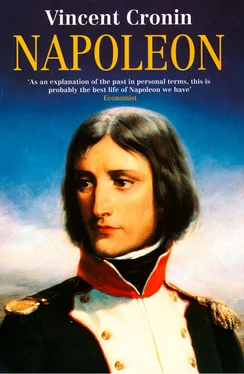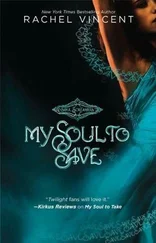Vincent Cronin - Napoleon
Здесь есть возможность читать онлайн «Vincent Cronin - Napoleon» — ознакомительный отрывок электронной книги совершенно бесплатно, а после прочтения отрывка купить полную версию. В некоторых случаях можно слушать аудио, скачать через торрент в формате fb2 и присутствует краткое содержание. Жанр: unrecognised, на английском языке. Описание произведения, (предисловие) а так же отзывы посетителей доступны на портале библиотеки ЛибКат.
- Название:Napoleon
- Автор:
- Жанр:
- Год:неизвестен
- ISBN:нет данных
- Рейтинг книги:3 / 5. Голосов: 1
-
Избранное:Добавить в избранное
- Отзывы:
-
Ваша оценка:
- 60
- 1
- 2
- 3
- 4
- 5
Napoleon: краткое содержание, описание и аннотация
Предлагаем к чтению аннотацию, описание, краткое содержание или предисловие (зависит от того, что написал сам автор книги «Napoleon»). Если вы не нашли необходимую информацию о книге — напишите в комментариях, мы постараемся отыскать её.
Napoleon — читать онлайн ознакомительный отрывок
Ниже представлен текст книги, разбитый по страницам. Система сохранения места последней прочитанной страницы, позволяет с удобством читать онлайн бесплатно книгу «Napoleon», без необходимости каждый раз заново искать на чём Вы остановились. Поставьте закладку, и сможете в любой момент перейти на страницу, на которой закончили чтение.
Интервал:
Закладка:
The food he ate came largely from his parents’ land; ‘the Buonapartes,’ said Archdeacon Lucciano with pride, ‘have never paid for bread, wine and oil.’ Bread was home-baked from corn ground in the mill that had been part of Letizia’s dowry. The milk was goat’s milk, the cheese a creamy goat’s cheese called bruccio. There was no butter, but plenty of olive oil; little meat, but plenty of fresh fish, including tunny. Everything was of good quality and nutritious. Napoleone took little interest in any food except black cherries: these he liked extremely.
When he was five, he was sent to a mixed day school run by nuns. In the afternoon the children were taken for a walk, and on these occasions Napoleone liked to hold hands with a girl named Giacominetta. The other boys noticed this, as well as the fact that Napoleone, careless about dress, always had his stockings round his ankles. They would follow him, shouting:
Napoleone di mezza calzetta Fa l’amore a Giacominetta.
Corsicans hate being made sport of, and in this respect Napoleone was a typical Corsican. He picked up sticks or stones, rushed among the jeering boys, and yet another scrap began.
From the nuns Napoleone went to a boys’ day school run by a certain Father Recco. Here he learned to read – in Italian, for French innovations did not touch the schools. He learned to write, also in Italian. He learned arithmetic, and this he liked. He even did sums out of school, for pleasure. One day, aged eight, he rode off with a local farmer to inspect a mill. Having learned from the farmer how much corn the mill would grind in an hour, he worked out the quantities ground in one day and one week. He also calculated the volume of water required to turn the mill-stones.
During the long summer holidays the family moved – taking their mattresses with them – to one of their farm houses near the sea or in the hills. Here Napoleone would be taken on long rides with his forceful Aunt Geltruda, who had no children of her own and liked to instruct him in farming. In this way he learned about yields of corn, the planting and pruning of vines, and the damage done by Uncle Lucciano’s goats to olive trees.
Corsican families like the Buonapartes were in a very unusual social position. Both Carlo and Letizia were nobles by birth: that is, for 300 years most of their forbears had married equals, and, although there was no inbreeding, a certain physical and mental refinement could be expected in each generation. But they differed from the rest of the European nobility in that they were not rich and possessed no privileges. They paid taxes like anyone else and workmen called them by their first names. Their house in Ajaccio was larger than most, but not essentially different: it had no family portraits on the walls, no footmen bowing and scraping. While their Continental counterparts, grown soft and fat, sought a never-never world in titillating novels and masked balls, the Corsican nobility had perforce remained close to the soil. They were more direct, more spontaneous: one small example is that members of a family kissed one another on the mouth. Because they lacked the trappings, they paid more attention to the inner characteristics of nobility. The Buonapartes believed – and taught Napoleone to believe – that honour is more important than money, fidelity than self-indulgence, courage than anything else in the world. Drawing on her experience, Letizia told Napoleone, ‘When you grow up, you’ll be poor. But it’s better to have a fine room for receiving friends, a fine suit of clothes and a fine horse, so that you put up a brave show – even if you have to live off dry bread.’ Sometimes she sent Giuseppe and Napoleone to bed supperless, not as a punishment but to train them ‘to bear discomfort without showing it’.
In France or Italy or England Napoleone would have grown up with a few friends of his own rank, but in Corsica all mixed on an equal footing. He was on the closest terms with Camilla, his wet-nurse, and his two best friends were Camilla’s sons. In the streets of Ajaccio and in the country he played with Corsicans of all types. He was taught not by a foreign tutor but by Corsicans. Though only two of his eight great-grandparents were of mainly Corsican stock, Napoleone inherited or acquired a number of Corsican attitudes and values.
The most important of these was a sense of justice. This for centuries had been a prime Corsican trait, for it is mentioned by classical writers. One example of it occurred when Napoleone was at school. The boys were divided into two groups, Romans and Carthaginians; the school walls were hung with swords, shields and standards made of wood or pasteboard, and the group superior in work carried off a trophy from the other. Napoleone was placed among the Carthaginians. He did not know much history, but at least he knew that the Romans had beaten the Carthaginians. He wanted to be on the winning side. It happened that Giuseppe was a Roman and Napoleone finally persuaded his easy-going brother to change places with him. Now he was a Roman, and should have felt content. But on reflection he decided he had been unjust to Giuseppe. He began to be weighed down by remorse. Finally he unburdened himself to his mother, and only when she had reassured him did he feel easy again.
Another example relates to his father. Carlo from time to time liked to go to one of the Ajaccio cafés to have a drink with friends. Sometimes he played cards for money, and if he lost Letizia was left short for housekeeping. She would say to Napoleone, ‘Go and see if your father’s gambling,’ and off he would have to go. He hated the idea of spying, and what is more, spying on his own father: it revolted his sense of justice. He adored his mother but all his life this was one small thing he was to hold against her.
Under Genoese rule justice had been venal, so the Corsicans had taken the law into their own hands and evolved a kind of barbarian justice: revenge. The Corsican instructed his children to believe in God and the Church, but he omitted the precept about forgiving injuries; indeed, he told them that insults must be avenged. Since the Corsican was extremely sensitive to any reflection on his own dignity, vendettas quickly built up, and were the curse of the island. One observer noted that ‘a Corsican is deemed infamous who does not avenge the death of his tenth cousin.’ ‘Those who conceive their honour injured allow their beards to grow … until they have avenged the affront. These long beards they call barbe di vendetta. ’ Revenge was the dark side of the Corsican’s manly pride and sense of justice; Carlo possessed it, and so did his son.
In this world of sudden killings on the mountainside people lived in terror of the evil eye, vampires, spells. Letizia, on hearing startling news, would cross herself very quickly and murmur ‘Gesù!’, a habit her son picked up. Then again, the Corsicans had a somewhat unhealthy obsession with violent death. Much of their sung poetry took the form of a sister’s dirges for her dear brother suddenly knifed or shot. There were many ghost stories, which Napoleone heard and remembered; there were haunting tales about death and its presages; when anyone was fated to die, a pale light over the house-top announced it; the owl screeched all night, the dog howled, and often a little drum was heard, beaten by a ghost.
Carlo meanwhile was adapting himself well to French rule. He crossed to Pisa to take his degree in law, and in 1771, when the French divided Corsica into eleven legal districts, Carlo got the job of assessor of the Ajaccio district. He had to help the judge both in civil and criminal cases, and to take his place when necessary. His salary was 900 livres a year. He promptly engaged a nurse for the boys, Caterina by name, and two servants to help Letizia with the cooking and laundry.
Читать дальшеИнтервал:
Закладка:
Похожие книги на «Napoleon»
Представляем Вашему вниманию похожие книги на «Napoleon» списком для выбора. Мы отобрали схожую по названию и смыслу литературу в надежде предоставить читателям больше вариантов отыскать новые, интересные, ещё непрочитанные произведения.
Обсуждение, отзывы о книге «Napoleon» и просто собственные мнения читателей. Оставьте ваши комментарии, напишите, что Вы думаете о произведении, его смысле или главных героях. Укажите что конкретно понравилось, а что нет, и почему Вы так считаете.












